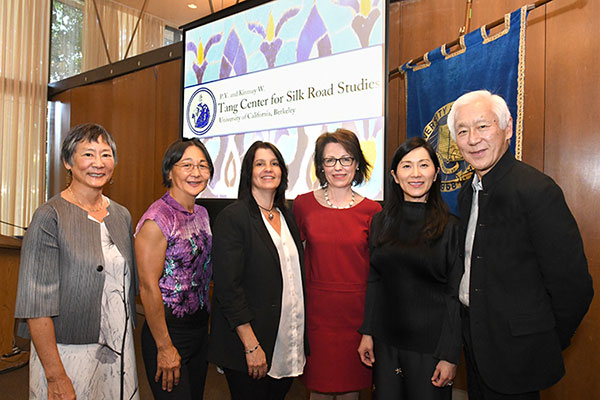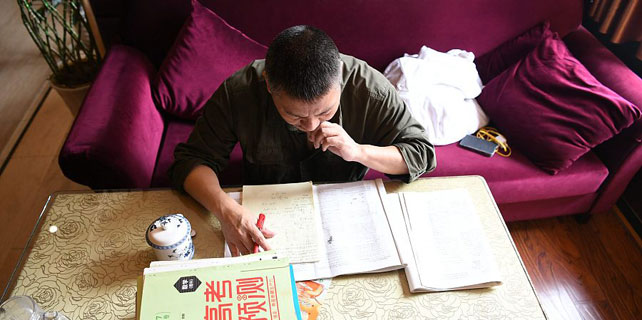Berkeley opens first center in US on study of Silk Road
 |
|
The P.Y. and Kinmay W. Tang Center for Silk Road Studies opened on April 29 at UC Berkeley. From left: Nadine Tang, Leslie Schilling, Sanjyot Mehendale, the center's chair; Corinne Debaine-Francfort of the National Center for Scientific Research in France; Agnes Hsu-Tang and Oscar Tang. Peg Skorpinski / UC Berkeley |
The University of California Berkeley has opened the first institutionalized center in the United States dedicated to the study of the Silk Road, the ancient trade route that linked China with the West.
Named the P.Y. and Kinmay W. Tang Center for Silk Road Studies, it was launched on April 29 with a $5 million gift by two branches of the family of Chinese American philanthropist Oscar Tang.
The benefactors are Tang and his wife, Dr Agnes Hsu-Tang, who are based in New York City, and Bay Area Berkeley alumni Nadine Tang and Leslie Tang Schilling, with their brother Martin Tang in Hong Kong.
Oscar Tang and his archaeologist wife founded the Tang Center for Early China at Columbia University in 2015. In 2003, he founded the first Tang center for excellence in Chinese Humanities, the P.Y. and Kinmay W. Tang Center for East Asian Art at Princeton University in 2003.
Oscar Tang believes that the new Tang Center at Berkeley is "part of my family's ongoing effort to enhance knowledge and understanding of the great Chinese civilization and its relationship to the rest of the world," according to a press release from the university.
The center will promote "the research and teaching of the material and visual cultures that flourished along the Silk Road and formed a bridge between the many economic epicenters of Eurasia and China. A better understanding of the Silk Road's history will also help contextualize its emergent geopolitical significance in the present time," the press release said.
Sanjyot Mehendale, the center's inaugural chair and a lecturer of Central Asian art and archaeology at Berkeley, said the center will promote the multidisciplinary collaboration necessary for Silk Road research.
"It's about coming together and poring over material from different sides," she said. "You can't just sit in your corner of expertise. You have to look at the art, you have to study the texts, you have to examine the archaeological remains, to build a bigger picture. The more we understand the history of the region, in particular Central Asia, the more it will resonate as a place, as cultures, as people," she said.
The center will fund fieldwork and fellowships for faculty and students at excavations, museums and archives; organize conferences and workshops to bring distinguished scholars to campus to share recent discoveries and research; advance teaching on Silk Road topics; foster visiting scholar exchanges; support open-source publications; and promote the training and outreach of K-12 teachers and community college instructors.
UC Berkeley is a natural site for a center dedicated to studying the Silk Road because it is home to a diverse group of scholars who are specialists in the languages, history, religions, intellectual and artistic traditions of the ancient civilizations of China, Central Asia and the Near East, the university said.
















